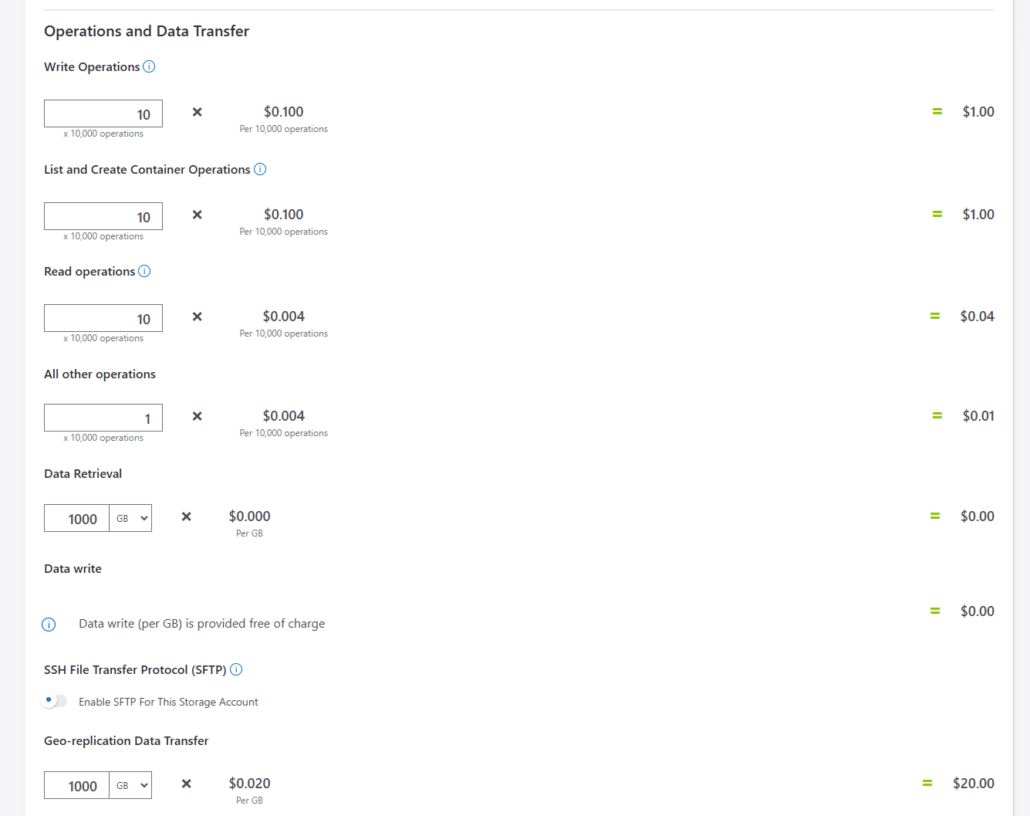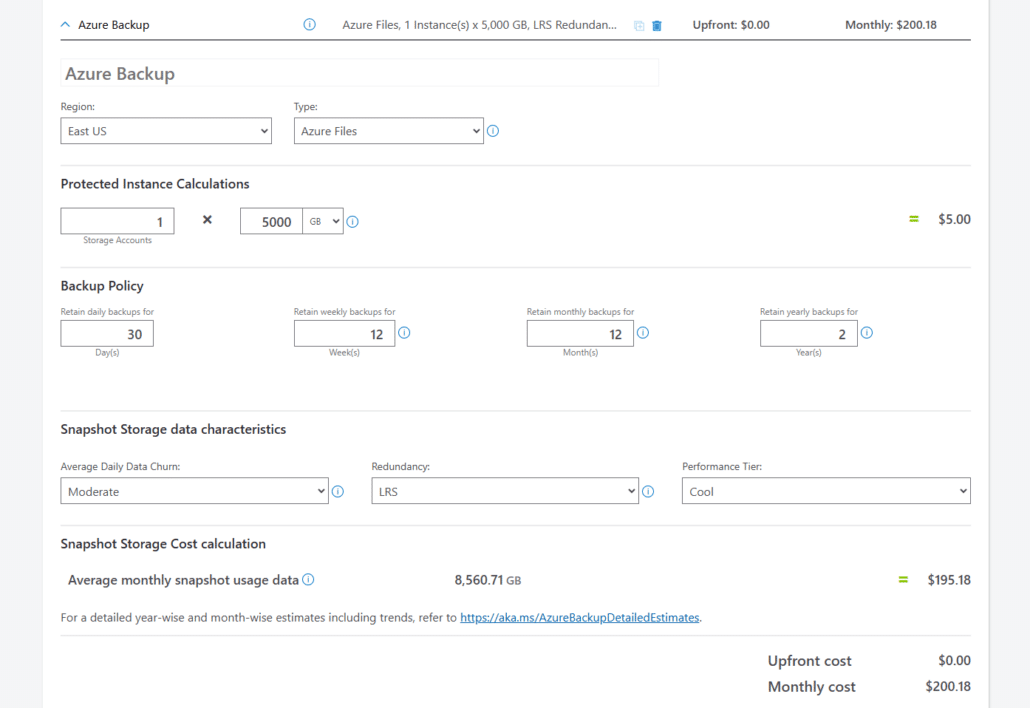Que peut-on faire pour vous aider aujourd'hui?
Calculateur de prix Azure – Estimation des coûts de stockage Azure
Veuillez consulter notre article de blog pour une discussion générale sur les coûts et les considérations relatives au stockage dans le cloud.
https://www.myworkdrive.com/blog/cloud-storage-pricing/
Fichiers Azure
Microsoft dispose d'un calculateur en ligne que vous pouvez utiliser pour estimer spécifiquement les prix sur Azure pour Azure Files et Azure Blob Storage
https://learn.microsoft.com/en-us/azure/cost-management-billing/costs/pricing-calculator
https://azure.microsoft.com/en-us/pricing/calculator/
Compte de stockage
Le prix dépendra d’un certain nombre de facteurs : région, charge, performances, sauvegarde/redondance, taille de stockage, débit d’accès, etc.
Nous conseillons généralement que les performances standard sont tout ce qui est requis lors de l'utilisation de l'accès API au stockage Azure (Premium est recommandé lors de l'utilisation de SMB avec AD)
Nous recommandons Hot comme niveau d'accès pour les fichiers régulièrement utilisés, mais vous pouvez choisir cool/cold/archive pour les données de type archivistique (sachez que le temps d'accès aux fichiers sera plus long et qu'il y aura des frais de sortie différents - par exemple, $.03/gb avec Cold contre $0 pour Hot dans l'Est des États-Unis avec des performances standard et LRS, au moment de la rédaction de cet article.)
La redondance est un choix organisationnel et aura un impact sur les coûts. Nous n'avons aucune recommandation concernant la redondance.
https://learn.microsoft.com/en-us/azure/storage/common/storage-redundancy
Vous pouvez également comparer les options Pay as you go et Reserved. MyWorkDrive n'a aucune préférence concernant les options Pay as you go ou Reserved data.
Opérations sur les fichiers
Le deuxième point à prendre en compte concerne les opérations sur les fichiers, c’est-à-dire les utilisateurs qui accèdent au partage de fichiers. MyWorkDrive ne génère pas plus de trafic qu’un utilisateur accédant par d’autres moyens. Vous pouvez donc estimer le stockage Azure en fonction de vos flux de travail actuels/normaux.
Notez qu'un certain nombre de ces mesures sont calculées pour 10 000 opérations. La valeur par défaut de l'estimation est donc de 100 000 écritures pour $1,00 (10 × 10 000).
Sauvegarde
Enfin, vous devrez envisager une sauvegarde pour votre stockage de fichiers. MyWorkDrive ne nécessite pas de sauvegarde et n'interagit pas avec elle. La méthode de sauvegarde est un choix organisationnel.
Azure Backup dans l’estimateur de coûts présente des paramètres similaires concernant la taille du niveau d’accès et la redondance, ainsi que les politiques de rétention.



